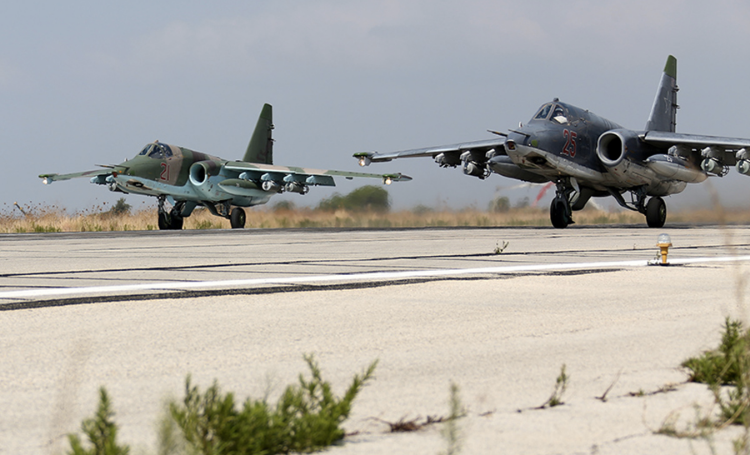Ambassador William Roebuck
The Arab Gulf States Institute in Washington, Feb. 25, 2022
“It also provides hints of the type of challenges Russian President Vladimir Putin wants to make to the U.S.-led, rules-based international system that many countries, including in the Gulf, have benefited from.”
Russian Defense Minister Sergei Shoigu visited Syria February 15 to oversee Ukraine-related Russian military exercises. Media accounts report that long-range, nuclear-capable Tu-22M3 bombers and MiG-31K strike fighter jets carrying the latest Kinzhal hypersonic cruise missiles landed at the Russian air base in Syria’s coastal province of Latakia as part of the drills. Russian amphibious assault vessels docked at Tartous for refueling and maintenance before departing to the Black Sea for Ukraine-related military drills and deployment. Shoigu also met with Syrian President Bashar al-Assad in Damascus.
The Shoigu visit makes clear a number of realities about the impact of Russia’s intervention in Syria and the way it presaged, and prepared the way, for what is happening in Ukraine. It also provides hints of the type of challenges Russian President Vladimir Putin wants to make to the U.S.-led, rules-based international system that many countries, including in the Gulf, have benefited from. Syria has given Russia a strategic foothold in the Mediterranean and Middle East, with a naval base at Tartous (with a 49-year, free-of-charge lease, according to media accounts) and a newly expanded air base at Hmeimim, near Latakia. The war in Syria allowed Russia to test new weapons systems in combat conditions and show to the world that it has been formidably rearming its military since 2010. The Syrian intervention helped to give Russia the confidence it could intervene in a decisive fashion and challenge the West’s response.
Ambassador William Roebuck is the executive vice president of the Arab Gulf States Institute in Washington.
To view the original article, click here


